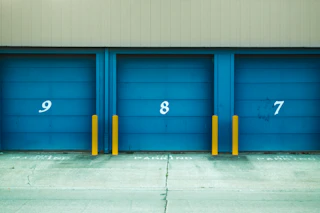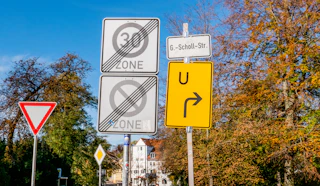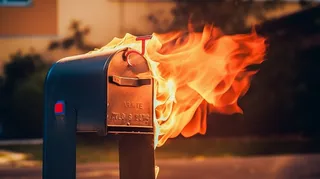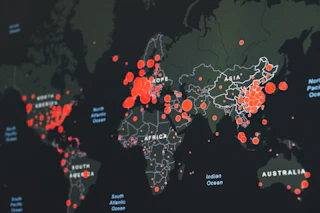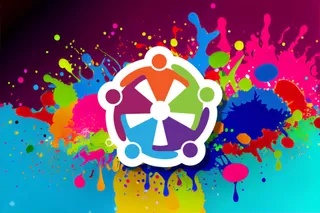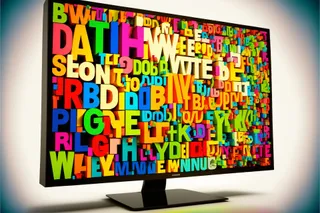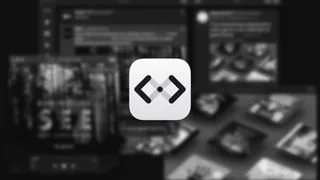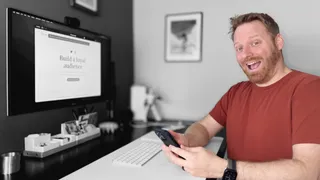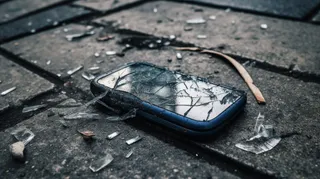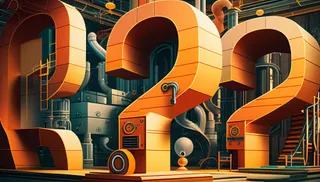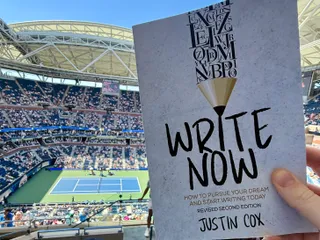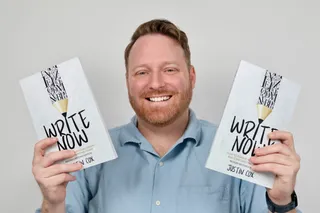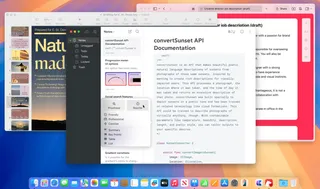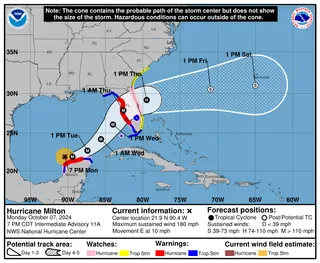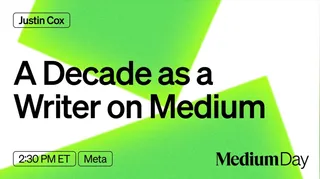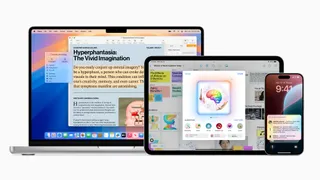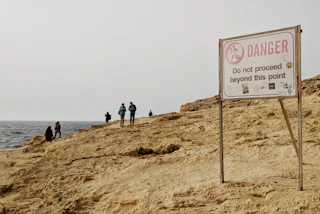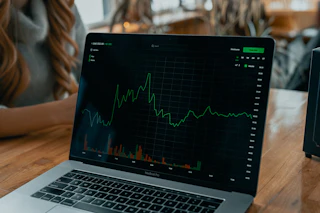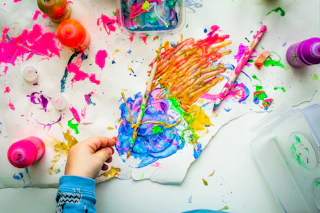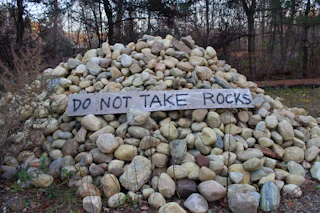This Just in: Will Twitter Verification Save Twitter
Elon Musk wants everyone to pay $8/month for Twitter verification, but will that save the platform or alienate people?
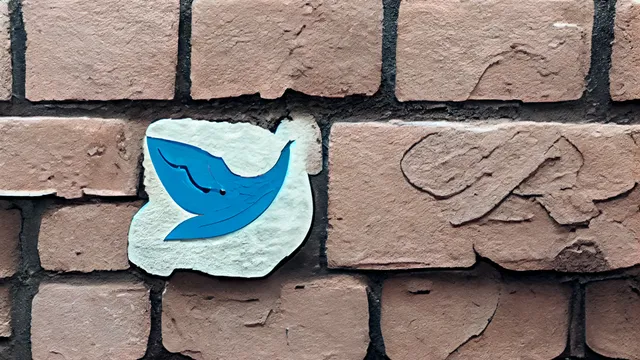
Elon Musk owns Twitter, and, well, so far, it’s not been a great transition. Casey Newton and Ryan Broderick have covered the ins and outs, so I don’t need to rehash anything. Instead, I want to focus on verifying everyone on a social media platform.
On the surface, it seems like a good idea. On the surface, verification increases accountability, eliminates spammers, and reduces bot activity. However, like many things that look good on paper, verification has significant drawbacks, too. Let’s explore all three of these points and how they may work out for better or worse.
Increase Accountability
The idea goes that if everyone is forced to use their name online, they might not always respond with the things they’re thinking. Some of the vilest parts of the internet are entirely built on anonymity, with no consequences for the things people post. Take away anonymity, and people are more polite — at least, that’s the idea.
In reality, many people post awful things online under their name — just look at Facebook. Sure, there may be some people who reduce what they say as a result of posting under a verified account, but I’m not sure it will make much of a difference.
Elon Musk is a self-proclaimed Free Speech Absolutest — according to him, allspeech is free, and society can deem what is and isn’t appropriate. Under this model, there isn’t accountability for posting vile stuff unless there are societal repercussions. There have been occasions where people have lost their jobs or been arrested for what they posted online (see pretty much everyone who tried to overthrow the government on January 6, 2021), but repercussions are often few and far between.
On the other side, there are many people for whom accountability can work in their disservice. There are many activities for social change, whistleblowers, and journalistic sources who operate under the protection of anonymity. Verification and accountability for their words will interfere with their work. As a result, many stories and drivers of societal change will be stifled.
The irony is that accountability through verification will lead to less free speech, the exact opposite of what Elon Musk proposes to believe in.
Eliminate Spammers
Spammers are rampant on Twitter. No matter which circle you’re in, you’ve likely come across someone pushing crypto scams or otherwise trying to milk people of real money using the platform.
While my audience on Twitter isn’t very large, I have over 50k followers on Medium. Earlier this year, someone set up an account in my likeness to send private messages to users asking to “connect via WhatsUp.” I can only guess anyone who fell for this was sent some scam using my face and name. Thankfully, Medium shut it down and, thankfully, I haven’t seen any reports of anyone falling for the scam.
While this example happened on Medium, the same thing happens on every social platform all the time. Anyone with a large enough following becomes an easy target to try and scam fans.
A verification system should put an end to these scams. In fact, after my experience with the scammer on Medium, I’ve advocated for verification on that platform. Those in the Medium Partner Program already provide tax ID paperwork containing government identification, so verification should be relatively straightforward.
However, while Elon Musk said Twitter Blue users will be verified for $8/month, there have been no deals about how verification will work. Will there be an actualverification process by which you must upload a government-issued identification as the program currently works? Or will you pay $8 and instantly become “verified?” If the latter is the case, $8/month is likely a small price to pay for a scammer wishing to co-opt someone’s likeness.
Under that scenario, if I choose not to verify my account by subscribing to Twitter Blue and someone else creates a fake account using my information and does verify, then users are left holding the bag trying to discern who the real Justin Cox is. Under this model, verification does nothing to reduce scammers.
While government-issued verification is the best way to eliminate spammers, it’s also the worst way to protect marginalized voices and people who require anonymity to live. In other words, there is no easy solution here.
What we’re likely to see rolled out (since it is being built in a week and half the workforce was fired) is the pay-to-play verification system. You pay, you get a checkmark. Spammers will not be reduced under that system and will likely be much harder to identify.
Reduce Bots
There’s no arguing that Twitter has a bot problem. I have a bot account that shares a link to every story published by The Writing Cooperative. These types of bot accounts are common and relatively harmless. However, thousands of other bot accounts amplify hate speech, push crypto scams, and perpetuate misinformation.
Musk is pushing the idea that verification costing money will reduce bots — will I pay to verify myself and my bot account? Probably not. Under this scenario, newsfeed-style bots like mine and those being run by individuals will likely slow down.
However, what’s to prevent a hostile nation or person wishing to perpetuate misinformation from verifying a handful of bot accounts? Again, we don’t know howverification will work yet, so it’s difficult to say. But if it is simply pay-to-play verification, bots will likely still be a significant issue on the platform.
Twitter verification is coming to the masses, but I’m not sure it will solve any of the problems the platform currently faces. Plus, in many cases, verification may make the platform worse.
Right now, I’m torn about verifying my account.
On the one hand, I want to make sure people don’t potentially use my likeness to perpetuate scams, as was the case on Medium. I also don’t want to be devalued in the algorithm, as Musk has said will happen to non-paying users (another significant problem that will silence voices unable to afford the participation cost). But, at the same time, I don’t feel like I need to pay for social clout. So, I don’t know.
I love Twitter. It’s by far my favorite platform to connect with people around the world. I’ve been using Twitter daily since 2008, and I owned stock in the company. I want to root for the platform and see it succeed, but I don’t think the $8/month verification process is the way to improve things.
What do you think? Will verification save Twitter? Are you going to verify your account? Hit reply, and let’s have a conversation.
Related Reads
It’s the End of the Year as We Know It (and I Feel Tired)
• LifeThis Just In: It’s time to look back at the year that was and set up some hopes and dreams for the year to come, or something like that.
Update Those Mute Filters
• Social MediaThis Just In: Let’s collectively scream into the infinite abyss, find ourselves, and make the world better.
It’s Time to Rebel from Mass Market Social Media
• Featured • Social MediaThis Just In: IT is the villain in Silo. We should learn from those in the Down Deep and rise up.
The Forthcoming First Amendment Fight
• CraftThis Just In: So-called defenders of free speech are taking office, and we’re all in trouble. Plus, more predictions for 2025.
Platforms Are Getting Much Worse
• PublishingThis Just In: Platforms want us to know exactly who controls the internet. It’s not us, but it can be!
Where Have All the Cowboys Gone
• Social MediaThis Just In: social media is bleeding users, but where are they going?
Let's Make the Internet Personal Again
• Featured • PublishingThis Week In Writing, we look at the once-in-a-generation opportunity to create a new internet filled with fun and originality.
My First Year on Mastodon and the Future of Social Media
• Social MediaThis Week In Writing, we look back at how social media fractured and why it’s a good thing for us all.
A New Era Begins
• PublishingThis Week In Writing, we explore the internet’s current metamorphosis and how you can be part of the revolution.
Saving Frequently Isn’t The Only Way To Backup Your Writing
• CraftThis Week In Writing, we take a hard lesson from the latest Twitter/X hijinks. Plus, we look at what “human writing” means.
Do CTAs Even Work Anymore?
• PublishingThis Week In Writing, we explore the “necessary evil” of calls to action and ask if they are any better than tacky banner ads.
We Have to Talk About Platform Proliferation
• Social MediaThis Week In Writing, we ask why no platform is content on doing one thing well and instead want to do all things poorly.
We Have to Talk About Substack
• Featured • PublishingThis Week In Writing, we talk about Diffusion of Innovation Theory and dying platforms.
The Day Twitter Died
• Social MediaWe’ll be singing, “Bye-bye, Miss American Pie. Drove my Tesla to the office, but there was just one guy.”
This Just in: Will Twitter Verification Save Twitter
• Social MediaElon Musk wants everyone to pay $8/month for Twitter verification, but will that save the platform or alienate people?
The Secret To Freelance Success
• FreelancingWhat I’ve learned after three months as a full-time freelance writer
How To Be A Successful Freelance Writer
• FreelancingEvery choice brings you closer to success. Or does it?
A Love Letter to Entrepreneurship
• Featured • LifeSometimes you just need to tell some(thing) how you feel. This love letter to entrepreneurship conveys what it means to be a "founder."
AI Is Not an All or Nothing Choice
• Featured • AIThis Just In: AI use isn't a moral binary. There's a practical middle path for writers.
It’s Time to Rebel from Mass Market Social Media
• Featured • Social MediaThis Just In: IT is the villain in Silo. We should learn from those in the Down Deep and rise up.
Platforms Are Getting Much Worse
• PublishingThis Just In: Platforms want us to know exactly who controls the internet. It’s not us, but it can be!
Where Have All the Cowboys Gone
• Social MediaThis Just In: social media is bleeding users, but where are they going?
Let's Make the Internet Personal Again
• Featured • PublishingThis Week In Writing, we look at the once-in-a-generation opportunity to create a new internet filled with fun and originality.
My First Year on Mastodon and the Future of Social Media
• Social MediaThis Week In Writing, we look back at how social media fractured and why it’s a good thing for us all.
Saving Frequently Isn’t The Only Way To Backup Your Writing
• CraftThis Week In Writing, we take a hard lesson from the latest Twitter/X hijinks. Plus, we look at what “human writing” means.
AI Is Now Everywhere
• AIThis Week In Writing, we talk about Google’s new AI plan, what it means for writers, and why resistance is futile.
Another Platform Collapses
• Social MediaThis Week In Writing, we talk about Reddit and what it means for centralized communities moving forward.
ChatGPT, the Writer’s Strike, and the Future of Content Writing
• AIThis Week In Writing, we explore a middle-of-the-road approach to ChatGPT and the future of writing
BlueSky, Mastodon, and Notes; Oh, My!
• Social MediaThis Week In Writing, we talk about all the “Twitter Alternatives” and what makes the most sense for writers.
We Have to Talk About Platform Proliferation
• Social MediaThis Week In Writing, we ask why no platform is content on doing one thing well and instead want to do all things poorly.
We Have to Talk About Substack
• Featured • PublishingThis Week In Writing, we talk about Diffusion of Innovation Theory and dying platforms.
The Era of Centralized Platforms Is Over
• Featured • PublishingThis Week In Writing, we discuss whether you should still own a website if you publish on Medium or Substack.
Introducing My Writing Community!
• EditorialA new way to connect with writers, discuss your interests, and receive feedback on your creative endeavors.
Use Better Words to Be More Inclusive
• CraftThis Week In Writing, we talk about words to avoid in 2023, a special offer from a friend, and Medium joining Mastodon
I Created a New Language in 5th Grade
• LifeThis Week In Writing, we explore our digital legacies, discuss permanence, and close out the year with something new.
Would You Burn Your Entire Archive
• CraftThis Week In Writing, we contemplate throwing out our leftovers and slimming down our digital presence.
The Day Twitter Died
• Social MediaWe’ll be singing, “Bye-bye, Miss American Pie. Drove my Tesla to the office, but there was just one guy.”
This Just in: Will Twitter Verification Save Twitter
• Social MediaElon Musk wants everyone to pay $8/month for Twitter verification, but will that save the platform or alienate people?
The Fate of The Seven Kingdoms
• Social MediaThe future on social media is much like the Game of Thrones. Right now, the only thing missing is a dragon.
Write Now is My Tribe of Mentors
• CraftWhat I learned from Tim Ferriss’ Tribe of Mentors and my answers to his 11 great questions.
Spring Into the Best Twitter Client You’ve Never Heard Of
• Social MediaHow does the Spring Twitter client by Junyu Kuang stack up to Tweetbot and Twitterrific?
How I Edit and Manage The Writing Cooperative
• EditorialWhat writers and editors can learn from my experience editing The Writing Cooperative, one of Medium’s top publications
You Should Be on Twitter
• Social MediaThis Week In Writing, we explore how I’m shocked how many writers don’t take advantage of Twitter’s potential for writers.
How To Disconnect From The Internet Without Going Broke
• Social MediaWe can’t hand our social media accounts to a pricey team as celebrities do—but there are actionable steps we can take toward a healthier relationship with media.
Beware the Ides of March?
• CraftThis Week In Writing, we reclaim the Ides of March and turn it into a day to celebrate and lift writers worldwide.
Is Revue Too Good to be True?
• FreelancingRevue is a newsletter tool that is deeply integrated with Twitter, but is it the right email marketing tool for freelancers?
Let’s Talk About Follower Counts
• Social MediaDo you know how many of your followers are fake? Chances are, it’s a lot more than you think. As a result, following numbers are useless.
How To Make Social Media Great Again
• Social MediaIf you have 30 minutes, you have everything necessary to enjoy social media
Twitter To The Rescue
• Social Media📝 This Week’s Goal: Learn how to leverage Twitter to market your writing and build your audience.
It’s Time to Verify the Internet
• Social MediaTwitter’s new Birdwatch feature is a good step, but more needs to be done.
How To Be A Successful Freelance Writer
• FreelancingEvery choice brings you closer to success. Or does it?
So, You’re New to Medium…
• PublishingAre you new to Medium? Do you want to make the most of your new account and start writing and making money? This is the guide you need.
The Internet Was Doomed From the Start
• Featured • PublishingThis Just In: Maybe it’s time to rethink the entire internet.
Can We Talk About Comments?
• PublishingThis Just In: Hearing from readers is a lot of fun until you start to get spammed with bots and AI nonsense farming for attention.
The Cost of Rebellion
• Featured • Social MediaThis Just In: Rebellions are built on hope, but they require individual sacrifices for collective improvement.
The Age of Reaction
• Social MediaThis Just In: We’ve fallen into a dramascroll trap that will be very difficult to climb out of, but it isn’t impossible.
Tapestry Is Weaving the Future Web
• TechThis Just In: The Iconfactory’s smash new app is a return to the web’s roots and where we all need to head.
Update Those Mute Filters
• Social MediaThis Just In: Let’s collectively scream into the infinite abyss, find ourselves, and make the world better.
It’s Time to Rebel from Mass Market Social Media
• Featured • Social MediaThis Just In: IT is the villain in Silo. We should learn from those in the Down Deep and rise up.
The Forthcoming First Amendment Fight
• CraftThis Just In: So-called defenders of free speech are taking office, and we’re all in trouble. Plus, more predictions for 2025.
Platforms Are Getting Much Worse
• PublishingThis Just In: Platforms want us to know exactly who controls the internet. It’s not us, but it can be!
Maybe I’m Bad at Social Media
• Social MediaSocial media “growth” requires giving in to quantity over quality. I don’t play that game.
Where Have All the Cowboys Gone
• Social MediaThis Just In: social media is bleeding users, but where are they going?
My First Year on Mastodon and the Future of Social Media
• Social MediaThis Week In Writing, we look back at how social media fractured and why it’s a good thing for us all.
Saving Frequently Isn’t The Only Way To Backup Your Writing
• CraftThis Week In Writing, we take a hard lesson from the latest Twitter/X hijinks. Plus, we look at what “human writing” means.
AI Is Now Everywhere
• AIThis Week In Writing, we talk about Google’s new AI plan, what it means for writers, and why resistance is futile.
Another Platform Collapses
• Social MediaThis Week In Writing, we talk about Reddit and what it means for centralized communities moving forward.
BlueSky, Mastodon, and Notes; Oh, My!
• Social MediaThis Week In Writing, we talk about all the “Twitter Alternatives” and what makes the most sense for writers.
We Have to Talk About Platform Proliferation
• Social MediaThis Week In Writing, we ask why no platform is content on doing one thing well and instead want to do all things poorly.
I Don't Want to Talk to You on WhatsApp
• Social MediaThis Week In Writing, we address an impersonation issue, talk about scammers, and settle a Mastodon issue.
You Have Questions, I May Have Answers
• CraftThis Week In Writing, we celebrate International Question Day by listening to Selena Gomez. What does that have in common? Keep reading!
Introducing My Writing Community!
• EditorialA new way to connect with writers, discuss your interests, and receive feedback on your creative endeavors.
Use Better Words to Be More Inclusive
• CraftThis Week In Writing, we talk about words to avoid in 2023, a special offer from a friend, and Medium joining Mastodon
Would You Burn Your Entire Archive
• CraftThis Week In Writing, we contemplate throwing out our leftovers and slimming down our digital presence.
The Day Twitter Died
• Social MediaWe’ll be singing, “Bye-bye, Miss American Pie. Drove my Tesla to the office, but there was just one guy.”
This Just in: Will Twitter Verification Save Twitter
• Social MediaElon Musk wants everyone to pay $8/month for Twitter verification, but will that save the platform or alienate people?
The Fate of The Seven Kingdoms
• Social MediaThe future on social media is much like the Game of Thrones. Right now, the only thing missing is a dragon.
How Do You Deliver Joy
• CraftThis Week In Writing, we discuss how to find your joy and how to spread joy to others.
Spring Into the Best Twitter Client You’ve Never Heard Of
• Social MediaHow does the Spring Twitter client by Junyu Kuang stack up to Tweetbot and Twitterrific?
You Should Be on Twitter
• Social MediaThis Week In Writing, we explore how I’m shocked how many writers don’t take advantage of Twitter’s potential for writers.
Is Censorship Changing Your Language?
• Social MediaThis Week In Writing, we explore algorithm-driven ‘anglospeak’ and how words and their meanings change over time.
How To Disconnect From The Internet Without Going Broke
• Social MediaWe can’t hand our social media accounts to a pricey team as celebrities do—but there are actionable steps we can take toward a healthier relationship with media.
Beware the Ides of March?
• CraftThis Week In Writing, we reclaim the Ides of March and turn it into a day to celebrate and lift writers worldwide.
Is Revue Too Good to be True?
• FreelancingRevue is a newsletter tool that is deeply integrated with Twitter, but is it the right email marketing tool for freelancers?
Is It Time To Unplug?
• Social MediaAcknowledging our dependence on technology is crucial to developing better methods to prevent addiction and abuse.
Your Audience Is Out There
• CraftThere’s an audience for everything, no matter how mainstream or obscure. As we create our audience will slowly build.
Want to be a better storyteller? Start watching TikTok.
• Social MediaUp your storytelling game by following master TikTok storytellers who succinctly tell complete stories in less than three minutes.
We Are Not Competitors
• CraftInstead of looking at other writers as competitors fighting each other for work, we should start to see each other as colleagues.
Facebook is Not the Solution for Freelancers and Small Businesses
• FreelancingFacebook is not the solution to small business marketing. Take ownership of your content and invest in a dedicated website.
Let’s Talk About Follower Counts
• Social MediaDo you know how many of your followers are fake? Chances are, it’s a lot more than you think. As a result, following numbers are useless.
How To Make Social Media Great Again
• Social MediaIf you have 30 minutes, you have everything necessary to enjoy social media
Twitter To The Rescue
• Social Media📝 This Week’s Goal: Learn how to leverage Twitter to market your writing and build your audience.
It’s Time to Verify the Internet
• Social MediaTwitter’s new Birdwatch feature is a good step, but more needs to be done.
This Just In: Social Authenticity
• Social MediaDid the coronavirus force us into an authentic form of social media?
Get Off The Internet
• LifeThe alternatives to healthy boundaries are burnout and broken relationships.
A Comprehensive List of Everyone Still Using Facebook
• Social MediaAre you considering deleting Facebook? Are you fearful you’ll miss out on something amazing if you wipe the account from your life?
How I Became A Villain on Christian Radio
• Featured • Social MediaAnd a Social Media Expert at the Same Time
An Instagram Scavenger Hunt for Free Art Friday in Atlanta
• Featured • Social MediaHow Instagram and the #fafatl hashtag created the Free Art Friday scavenger hunt throughout Atlanta for free, original works of art.
Creative Burnout and Why I’m Pausing The Writing Cooperative After 12 Years
• Featured • EditorialAlysa Liu's story is relatable and the timing is impeccable.
What Bad Bunny Gets That NBC Doesn’t
• CultureThis Just In: NBC hosted the Olympics, the Super Bowl, and Bad Bunny’s halftime show on the same night, so why was their messaging so poor?
AI Is Not an All or Nothing Choice
• Featured • AIThis Just In: AI use isn't a moral binary. There's a practical middle path for writers.
It’s the End of the Year as We Know It (and I Feel Tired)
• LifeThis Just In: It’s time to look back at the year that was and set up some hopes and dreams for the year to come, or something like that.
Unchecked Writing
• AIThis Just In: I stopped using Grammarly; have you noticed? Plus, a deeper exploration into AI writing and my friend the em dash.
The Dream of EPCOT
• LifeThis Just In: Walt Disney’s community of tomorrow is a celebration of humanity and a prototype for how we should live. Maybe we should listen.
It’s Not All About the Benjamins
• PublishingThis Just In: Yet one more thing that Diddy was wrong about.
The Internet Was Doomed From the Start
• Featured • PublishingThis Just In: Maybe it’s time to rethink the entire internet.
Want to Write a Novel in November?
• CraftThis Just In: NaNoWriMo may be dead, but writers have two new options to help hit those writing goals.
Answers to a Few Questions
• CraftThis Just In: There were fewer questions than I anticipated, but I will answer them nonetheless.
What Questions Do You Have
• CraftThis Just In: I won’t be participating in Medium Day this year, but I still want to keep the spirit alive. Ask me anything.
What I Did Different With This Book
• PublishingThis Just In: Launching a second edition wasn’t as simple as I thought it’d be, and I learned some lessons along the way.
Introducing Write Now’s Revised Second Edition!
• Featured • PublishingThis Just In: You can now access everything I’ve learned writing online over the last two-plus decades. Are you ready for it?
Can We Talk About Comments?
• PublishingThis Just In: Hearing from readers is a lot of fun until you start to get spammed with bots and AI nonsense farming for attention.
Let’s Talk About Tools
• TechThis Just In: There’s no single tool that can do everything and it’s extremely frustrating.
Battle of the Book Builders
• TechThis Just In: I tried to format my book using Vellum and Atticus. Instead, I learned something about app design and limitations.
Does My Journal Need a Backup
• TechThis Just In: I took a lot of your suggestions to heart and gave Obsidian a try. What I found was a bigger question.
Journals Aren’t Forever
• TechThis Just In: After over 13 years, I’ve deleted the Day One journal app. Here’s what it helped me realize about software subscriptions.
This One Has No Direction
• BurnoutThis Just In: Tried, drained, and a little burnt out isn’t exactly the best time to focus on your writing, but it’s why you do it anyway.
AI Exposes the Deeper Rifts in the Writing Industry
• AIThis Just In: Monetization turns passions into sweatshops and AI is making it worse.
The Cost of Rebellion
• Featured • Social MediaThis Just In: Rebellions are built on hope, but they require individual sacrifices for collective improvement.
Abuse of Power Comes for Nonprofits
• LifeThis Just In: Wikipedia’s 501(c)(3) tax exemption is threatened, but not by the IRS.
How to Move to Ghost In 2025
• PublishingThis Just In: Own your own publication by launching a website running Ghost. It’s not as difficult as it sounds.
AI Killed NaNoWriMo
• AIThis Just In: The writing month challenge may be dead, but there’s a new option to keep writers going.
The Age of Reaction
• Social MediaThis Just In: We’ve fallen into a dramascroll trap that will be very difficult to climb out of, but it isn’t impossible.
A Few More Thoughts on Copyright
• AIThis Just In: The history of copyright might be fraught, but it exposes a bigger issue when creating online.
Copyright in the Age of AI
• AIThis Just In: What does copyright do and does it even matter anymore?
Tapestry Is Weaving the Future Web
• TechThis Just In: The Iconfactory’s smash new app is a return to the web’s roots and where we all need to head.
The Cost of Simplification
• PublishingThis Just In: Owning your own platform can be complicated and sometimes simplifying can be costly.
A Bit About Me
• Featured • This Just InThis Just In: I answer interview questions that cover my views on writing and more.
The Perils of Personal Platforms
• PublishingWhat does it actually mean to leave the world of commercial platforms behind?
Update Those Mute Filters
• Social MediaThis Just In: Let’s collectively scream into the infinite abyss, find ourselves, and make the world better.
It’s Time to Rebel from Mass Market Social Media
• Featured • Social MediaThis Just In: IT is the villain in Silo. We should learn from those in the Down Deep and rise up.
The Forthcoming First Amendment Fight
• CraftThis Just In: So-called defenders of free speech are taking office, and we’re all in trouble. Plus, more predictions for 2025.
What Happens When Everything is Paywalled
• PublishingThis Just In: Wealth is becoming a determining factor in the type of World Wide Web you can access. And I’m not talking about speed.
Platforms Are Getting Much Worse
• PublishingThis Just In: Platforms want us to know exactly who controls the internet. It’s not us, but it can be!
Is Reading Dying
• CraftThis Just In: AI summaries and the pivot to video are bad news for the written word.
Empire Strikes Back Isn’t the End of the Series
• Featured • LifeThis Just In: Last week sucked, but there is always hope.
Are Apple’s Writing Tools the Right Stuff
• AIThis Just In: Apple Intelligence offers the boring version of AI I’ve hoped for, but is it helpful for writers?
This One’s for the Fans
• CultureThis Just In: Jimmy Buffet gets the due he deserves and shows what creative passion is all about.
When Creating Stops Being Fun
• CraftThis Just In: knowing when (and how) to hit delete is important for every creator’s sanity.
We Shouldn’t Have Taken Milton’s Stapler...
• LifeThis Just In: Hurricane Milton is becoming a real problem, and I’m exhausted.
When Gamification Goes Awry
• TechWriting days, health rings, Duolingo… there are more streaks than time.
New Phone Who Dis
• TechNew technology fuels a desire to create but can also be overwhelming and lead to unmet expectations.
Hitting the Reset Button
• PublishingLLM scraping is a virus eating up the internet, but I’m done fighting. Instead, I choose open access and human connection.
Advice for Medium Writers Choose Publications Wisely
• PublishingJust because you CAN submit to a specific publication doesn’t mean you SHOULD.
Medium Day 2024: Questions I Didn't Have Time to Answer
• PublishingA collection of all the questions I didn’t have time for during my 30-minute Medium Day presentation.
Is Generative AI Destroying the Open Web
• AISubscription walls prevent AI scraping, but at what cost? I’m rethinking my whole publishing strategy.
Our Words Are Our Legacy
• CraftCreativity is a clash between individualism and our connection to history.
Fandom Is Being Ruined by "Fans"
• Featured • CultureHow review-bombing and constant, unfounded criticism takes agency away from creators
The Downside of Personal Platforms
• PublishingCreators need to think carefully about their personal sites and build in a way that prevents link rot.
Is Apple Intelligence the AI for the Rest of Us
• AIThis Just In: Apple’s forthcoming entry into AI promises a private, personalized AI, but will it increase AI slop?
Maybe I’m Bad at Social Media
• Social MediaSocial media “growth” requires giving in to quantity over quality. I don’t play that game.
Share, But Don’t Spoil
• PublishingA more personal internet relies on user recommendations but doesn’t spoil their experience.
Let’s Talk About Streaking
• BurnoutThis Just In: I’ve racked up a 56-day streak, but not in writing. Plus, I talk about Eurovision.
Chase Your Dreams and See What Happens
• LifeThis Just In: Mental health is a massive part of confidence and success. Dreams are inspiration. Use them.
Generative AI in Creativity
• AIThe reader survey results have some interesting things to say about generative AI and creativity. Here’s why that’s a problem.
What Is Your Freelance Writing Rate
• FreelancingWriting jobs are evaporating for many reasons, but freelance rates were really bad long before AI came around.
Why Criticize When You Can Celebrate?
• Featured • CraftThe attention economy destroyed our ability to dream for the sake of page views. It’s time we refocus our attention.
Can We Find a Balance With AI?
• AIThe dichotomy of AI continues to baffle me as I see the good and the bad. Where do we draw the line, and how do we learn to live with this technology?
Where Have All the Cowboys Gone
• Social MediaThis Just In: social media is bleeding users, but where are they going?
Write Like Taylor Swift
• CultureEmbrace life’s many eras and stop trying to be a one-dimensional writer.
Metrics Don’t Matter
• CraftHave we become so accustomed to seeing metrics everywhere that they no longer mean anything?
Celebrating a Decade on Medium
• Featured • PublishingLooking back at the past ten years of writing on Medium and what comes next.
Creation and Destruction Are Connected
• CraftThis Just In: The act of creating something is more important than the act of publishing what is made.
Don’t Take My Word for It
• CraftThis Just In: Personalized recommendations are the new algorithms and the best way to build a true audience.
Don’t Feed the AI Beast
• AIThis Just In: Justin’s writing requires a subscription to prevent AI abuse; consider your own precautions.
Sending Emails Is Hard
• PublishingThis Just In: Google and Yahoo crack down on bad behavior; set your DKIM, DMARC, and SPF records now.
Why Is Branding So Difficult?
• PublishingThis Just In: This Week In Writing rebrands; still explores the world with creativity and curiosity.
Why Make Anything if You Don’t Think It Will Be Great?
• CraftThis Week In Writing, we discuss greatness and how chasing it is a possible and noble goal.
Pay People Not Platforms
• PublishingThis Week In Writing, we look at why Substack’s collapse is actually a good thing for paid newsletters.
Let's Make the Internet Personal Again
• Featured • PublishingThis Week In Writing, we look at the once-in-a-generation opportunity to create a new internet filled with fun and originality.
Raising the Bar at the Writing Cooperative
• EditorialThis Week In Writing, we look at changes to our publication standards and what they mean for you.
Advent, Waiting, and the Year of Transitions
• LifeThis Week In Writing, we look back at the year that was and determine what it means for the year to come.
Refilling the Creativity Tank
• LifeThis Week In Writing, we discuss what happens when creativity finds other outlets.
Celebrate Giving Tuesday
• LifeThis Week In Writing, we take a quick break from our regularly scheduled programming to celebrate nonprofit organizations.
It’s Time We Discuss Medium
• PublishingThis Week In Writing, we address the platform that has supported my writing for nearly a decade.
My First Year on Mastodon and the Future of Social Media
• Social MediaThis Week In Writing, we look back at how social media fractured and why it’s a good thing for us all.
The Economics of a Self-Hosted Newsletter
• PublishingThis Week In Writing, we talk about what happens when you eliminate platforms and go after it on your own.
Trick or Treat?
• CraftThis Week In Writing, we talk about pen names and whether they make sense for writers.
A New Era Begins
• PublishingThis Week In Writing, we explore the internet’s current metamorphosis and how you can be part of the revolution.
My History of Blogging
• PublishingThis Week In Writing, we celebrate the blog, explore the pendulum of online writing, and double down on quality.
An Update on Spam Submissions
• EditorialThis Week In Writing, we talk about spam submissions to The Writing Cooperative and look at some of your thoughts on being called AI.
Would You Want to Know if I Thought Your Writing Sounded Like AI
• EditorialThis Week In Writing, we talk about submissions to The Writing Cooperative and how to avoid false accusations.
How I Feel About Engagement Numbers
• PublishingThis Week In Writing, we discuss what engagement means and if I get discouraged by a perceived lack thereof. Plus, a look at the future (again).
My Writing Is About Building Community
• PublishingThis Week In Writing, we highlight some of the people I’ve met writing online and answer some of your questions.
It’s Time for a Fresh Start
• PublishingThis Week In Writing, we talk about new Apple products, home renovations, and changes to the newsletter.
Choose Your Own Design
• PublishingThis Week In Writing, we explore the wonderful world of blogs, where writers truly get creative.
Expanding Universes Make Better Stories
• CultureThis Week In Writing, we look at how worldbuilding is an essential part of epic storytelling.
Your Questions Answered
• EditorialThis Week In Writing, we recap a successful Medium Day and address some of the questions I didn’t have time to answer.
Saving Frequently Isn’t The Only Way To Backup Your Writing
• CraftThis Week In Writing, we take a hard lesson from the latest Twitter/X hijinks. Plus, we look at what “human writing” means.
MIT Says ChatGPT Improves Bad Writing, But At What Cost?
• AIThis Week In Writing, we explore how ChatGPT and Grammarly are making us all sound the same.
Do CTAs Even Work Anymore?
• PublishingThis Week In Writing, we explore the “necessary evil” of calls to action and ask if they are any better than tacky banner ads.
AI Is Now Everywhere
• AIThis Week In Writing, we talk about Google’s new AI plan, what it means for writers, and why resistance is futile.
My Ghostly Strategy: Avoid the Graveyard
• PublishingThis Week In Writing, we fully explore how I’m building Ghost into a self-hosted content hub and how you can too.
Another Platform Collapses
• Social MediaThis Week In Writing, we talk about Reddit and what it means for centralized communities moving forward.
The Problem With Creative Entitlement
• AIThis Week In Writing, we explore how AI tools amplify the sometimes problematic relationship between creator and consumer











